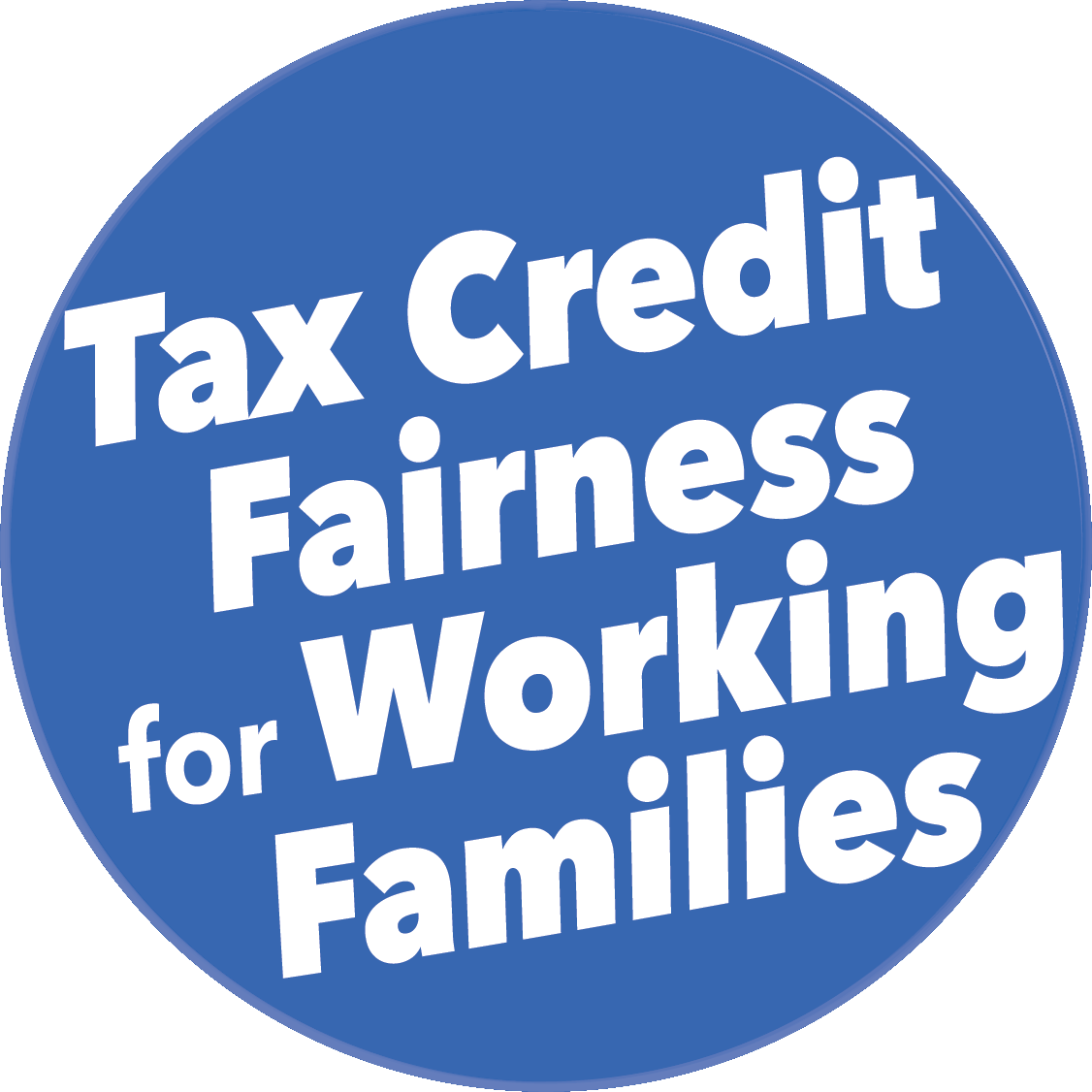Tax Credit Fairness for Working Families
Learn How Tax Credit Fairness Can Make a Real World Difference to Children and Families across Massachusetts
Today, thousands of Massachusetts children and families are hurt financially by state tax rules that make it harder for working families and lower-income individuals to access tax credits. That's unfair. To change this, we are asking state legislators to pass “Tax Credit Fairness” bills S.1798, H.2761/S.1792, and H.2762/S.1793 right away, and we're asking Massachusetts residents like YOU to support passage of these bills by asking your legislators, too. Together, we can make a difference by improving access to tax credits that reduce poverty and increase opportunities all over the Commonwealth.
Tax Credit Fairness by the Numbers
Numerically, a few key ways that our campaign would lower taxes for working families include:
From 30% to 50%
Raising the Massachusetts EITC match rate from 30% of the federal Earned Income Tax Credit (EITC) to 50%.
$600 or more
Merging two low dependent tax credits into one Child and Family Tax Credit (CFTC) of at least $600 per dependent.
$75,000
phase out
Expand the Massachusetts Earned Income Tax Credit (EITC) phase out rate to cover middle-income families.
Zero age or size limits
Remove the dependent age limits in the CFTC and the current large family penalty in the state EITC.
60 to 1
ROI
Volunteer Income Tax Assistance (VITA) sites bring in millions of dollars to tax payers and to local communities.
13,200
households
Number of immigrant families who would benefit by expanding the EITC to Income Tax Identification Number (ITIN) filers.
Tax Credit Fairness is Tax Policy That Helps Families...
...Keep More Earned Income
Increase the Massachusetts Earned Income Tax Credit (EITC) from 30% to 50% of the value of federal EITC. Raising the MA EITC match rate would increase financial resources for working families with low incomes, improving economic stability and children’s health.
…Qualify for More Tax Credits
Many working people are currently penalized from claiming EITC tax credits, including seniors, immigrants, and large families.
…Access Tax Credits More Easily
Streamline two existing tax credits into a single Child and Family Tax Credit, making filing taxes easier, and fairer. (Details)
Make a Difference Today
Support tax reform for working families now by asking your legislators to pass the Tax Credit Fairness bills.
Tax Fairness Makes a Difference
in Many Ways, including...
A Health Difference
Expansions in the EITC have been strongly associated with a decrease in infants born with low birth weights. Children in families receiving the EITC have fewer behavioral health problems, such as anxiety and depression, and mothers receiving the EITC are more likely to have signs of good health, including lower risk of high blood pressure and inflammation and reduced reports of depression and stress.
An Opportunity Difference
The EITC lifts children out of poverty by putting more money back into families’ pockets. In 2018, the federal EITC kept 5.6 million people – over half of them children – out of poverty.
An Education Difference
Children who live in households that receive the EITC have better school performance, greater college enrollment, and increased work and earnings in adulthood. Research shows that these academic achievement benefits are amplified with the size of the EITC received, with some suggestion that the benefit of larger EITCs are greater for children of color.
A Quality of Life Difference
EITC payments are associated with lower state-level rates of child maltreatment reports. For each additional $1,000 in per-child EITC and CTC refunds, state-level rates of reported maltreatment declined in the week of and 4 weeks following by an estimated 5%.

